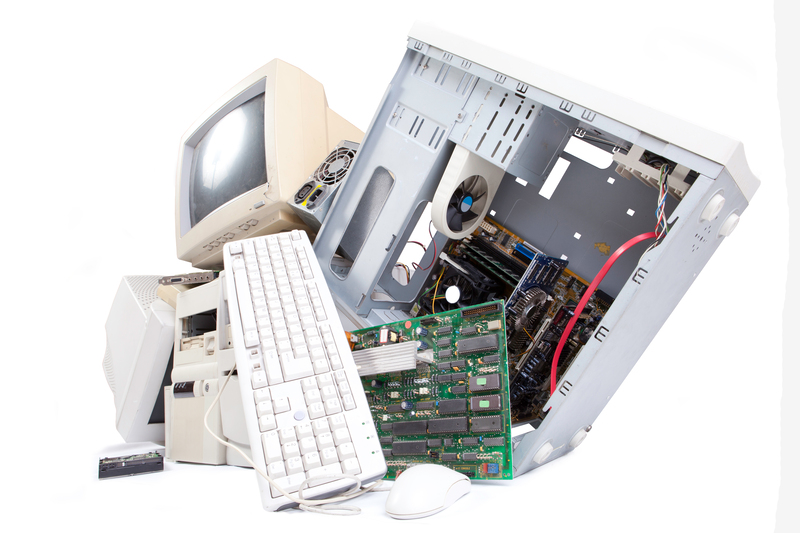Posted on 16/03/2024
London has long been recognized as a global leader in sustainability, with initiatives such as the congestion charge and the introduction of clean air zones. However, one aspect that continues to pose a challenge for the city is recycling. Despite efforts to promote recycling, the capital city still falls behind other major cities in terms of its recycling rates. In fact, London's recycling rate stands at a mere 33%, compared to other cities such as Cardiff and Edinburgh which have achieved rates over 60%. But this issue can no longer be ignored. With landfill space rapidly decreasing and the threat of climate change looming, it is crucial for London to address its recycling challenges and make significant progress towards a more sustainable future.
So what are the key problems that are hindering London's recycling efforts? And what steps can the city take to overcome these challenges?
Problem #1: Lack of Awareness
One of the main barriers to achieving higher recycling rates in London is the lack of awareness among residents. While many may have good intentions, they are often not fully aware of what can be recycled or where to take their recyclables. This leads to confusion and ultimately results in items being sent to landfill rather than being recycled.
Solution: Education Campaigns
To tackle this issue, the city must launch extensive education campaigns to inform its residents about proper recycling methods. This could include reaching out through social media, community events, and targeted advertising campaigns. By raising awareness and providing clear guidelines on what can be recycled and how, Londoners will be more likely to participate in recycling efforts.
Problem #2: Limited Collection Services
Another obstacle to sustainable waste management in London is the limited collection services available. Currently, only around 50% of households have access to separate food waste collections. This means that much of the food waste ends up in landfills where it breaks down and releases harmful methane gas into the atmosphere.
Solution: Expansion of Collection Services
To encourage recycling, the city must expand its collection services to cover all households. This could include implementing separate food waste collections and increasing the frequency of recycling collections. By providing easier access to recycling facilities, residents will be more inclined to participate in recycling.
Problem #3: Contamination of Recyclables
Contaminated recyclables are another major issue in London's recycling efforts. When items such as dirty food containers or non-recyclable materials are placed in the recycling bin, the entire load becomes contaminated and cannot be processed. This results in a significant amount of recyclables ending up in landfills.
Solution: Facilities for Sorting and Cleaning
To address this problem, London needs to invest in facilities that can effectively sort and clean recyclables. With advanced technology, these facilities can detect and remove any contaminated items, ensuring that only clean materials are sent for processing.
Problem #4: Insufficient Infrastructure
London's rapid population growth has put a strain on its waste management infrastructure. The current facilities were not designed to handle the increasing amount of waste being produced, leading to frequent breakdowns and delays in processing recyclables.
Solution: Investment in Sustainable Infrastructure
The city must invest in new and sustainable infrastructure to keep up with the growing demand for waste management services. This could include building modern recycling centers equipped with state-of-the-art technology, as well as establishing partnerships with private companies for more efficient waste collection and processing.
Problem #5: Lack of Incentives
Despite the efforts made by the government and local councils, many residents still do not see the benefits of recycling. Without proper incentives, people may not feel motivated enough to change their habits and recycle regularly.
Solution: Reward Programs
To encourage participation, London can introduce reward programs for those who actively recycle. This could include discounts on council tax or utilities, vouchers for local businesses, or even a points system that could be redeemed for rewards.
Problem #6: Financial Constraints
Limited budgets for waste management are another challenge facing London's recycling efforts. With competing priorities and tight budgets, it can be difficult to allocate funds for sustainable waste management initiatives.
Solution: Public-Private Partnerships
One solution to this issue could be forming public-private partnerships with companies that specialize in sustainable waste management. These partnerships can help reduce the financial burden on the government while also bringing in advanced technologies and expertise to improve recycling efforts.
Problem #7: Resistance to Change
Lastly, one of the biggest hurdles to overcome is resistance to change. Many people are accustomed to their current way of disposing of waste and may be hesitant to adopt new recycling practices.


Solution: Continuous Engagement and Feedback
To address this, continuous engagement with residents is crucial. By seeking feedback and addressing concerns, the city can work towards building a more positive attitude towards recycling. Additionally, regular monitoring of recycling processes can help identify areas for improvement and keep residents informed about the progress being made.
Pros:
- Higher recycling rates will reduce the amount of waste sent to landfills, decreasing the risk of environmental damage.
- Increased awareness and participation in recycling efforts can create a more sustainable future for London.
- Improved infrastructure and collection services can lead to job creation and boost the local economy.
Cons:
- Implementing new infrastructure and services requires significant investments which may not be feasible for all local councils.
- Education campaigns and reward programs may not be enough to encourage some residents to change their habits.
- Despite efforts, there may still be challenges in achieving high recycling rates due to population growth and changing trends in consumer behavior.
Takeaways:
1. Education and awareness are key in encouraging more people to recycle.
2. Infrastructure upgrades and expansion of collection services are necessary for efficient waste management.
3. Incentives such as reward programs can motivate people to recycle regularly.
4. Continuous engagement with residents is crucial in driving changes in attitudes towards recycling.
5. Public-private partnerships can help alleviate financial constraints and bring in expertise to improve recycling efforts.
In conclusion
London's recycling challenges may seem daunting, but by addressing these issues through effective solutions, the city can make significant progress towards a more sustainable future. From increasing awareness and education to investing in new infrastructure and implementing reward programs, these steps can lead to higher recycling rates and create a cleaner, healthier environment for all residents. It is time for London to take action and work towards overcoming its recycling challenges in order to pave the way for a greener and more sustainable future.
Latest Posts
Tips for Proper Disposal of Regular Waste
Garbage Cleanup Bags - Efficient Skip Substitute

































 Get a Quote
Get a Quote